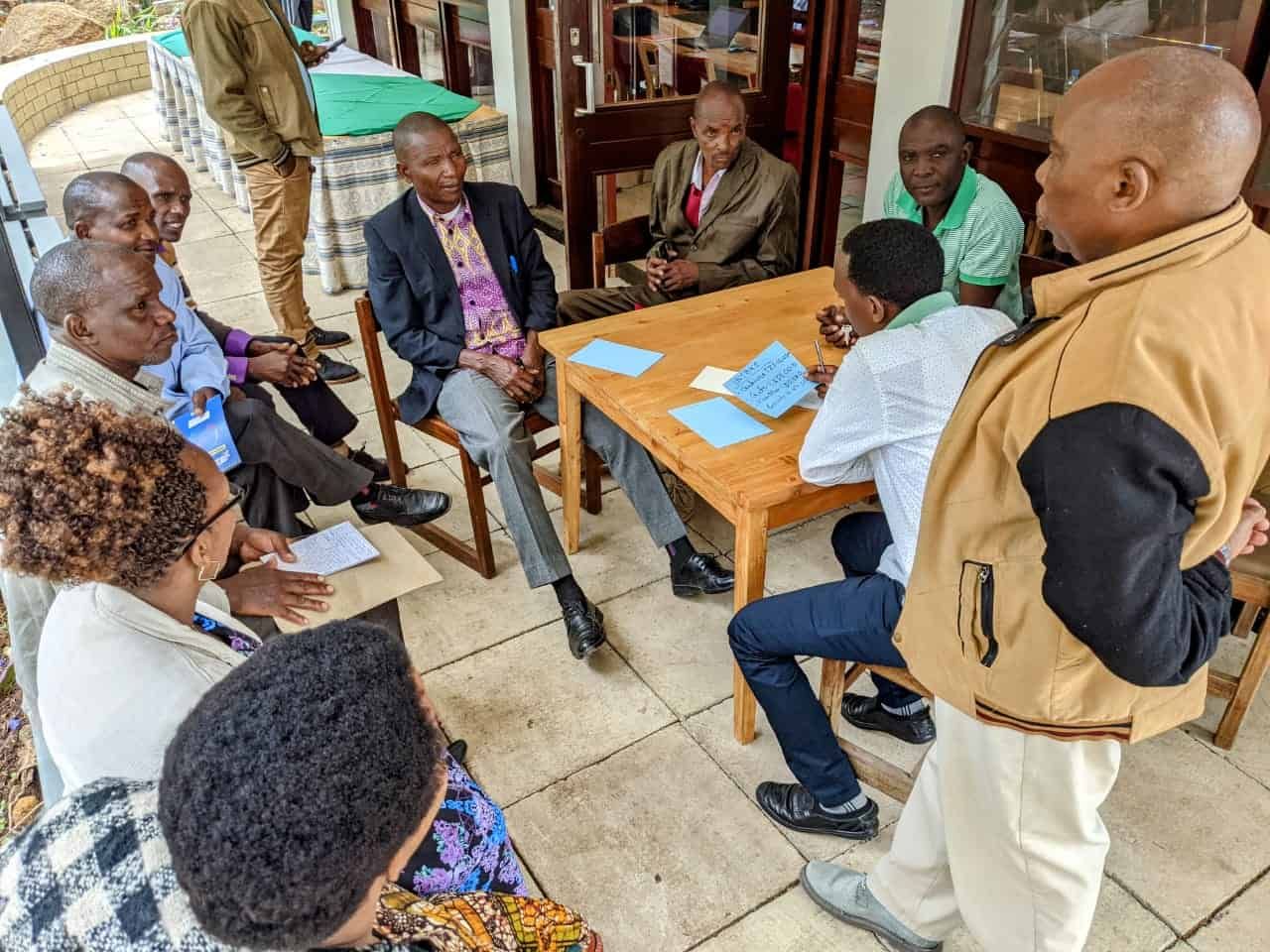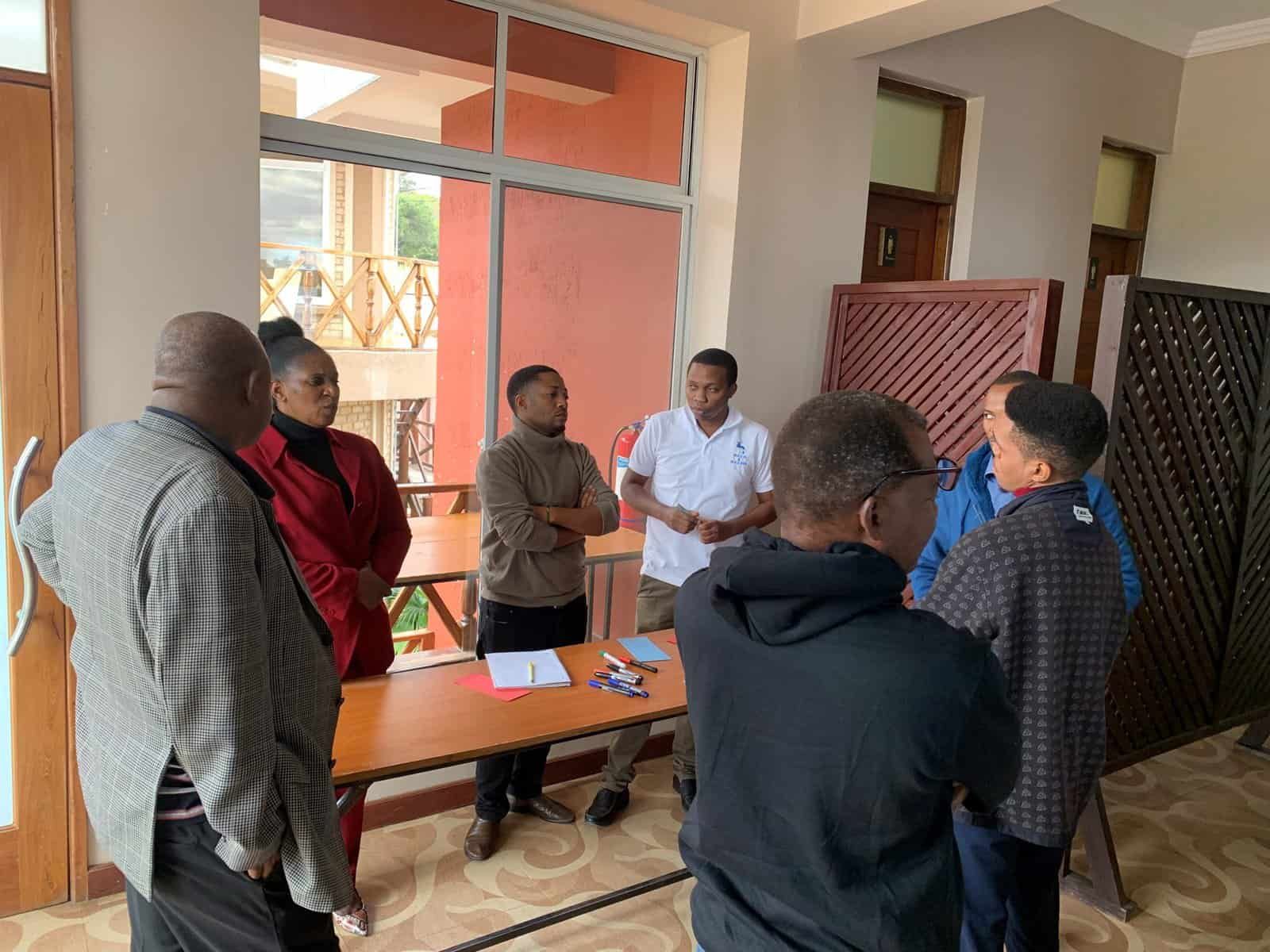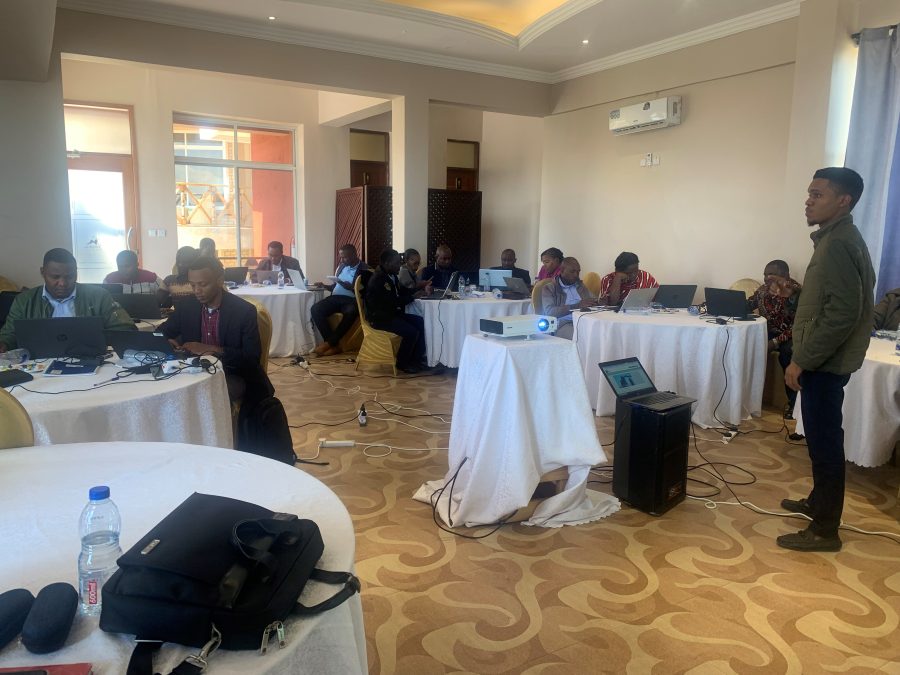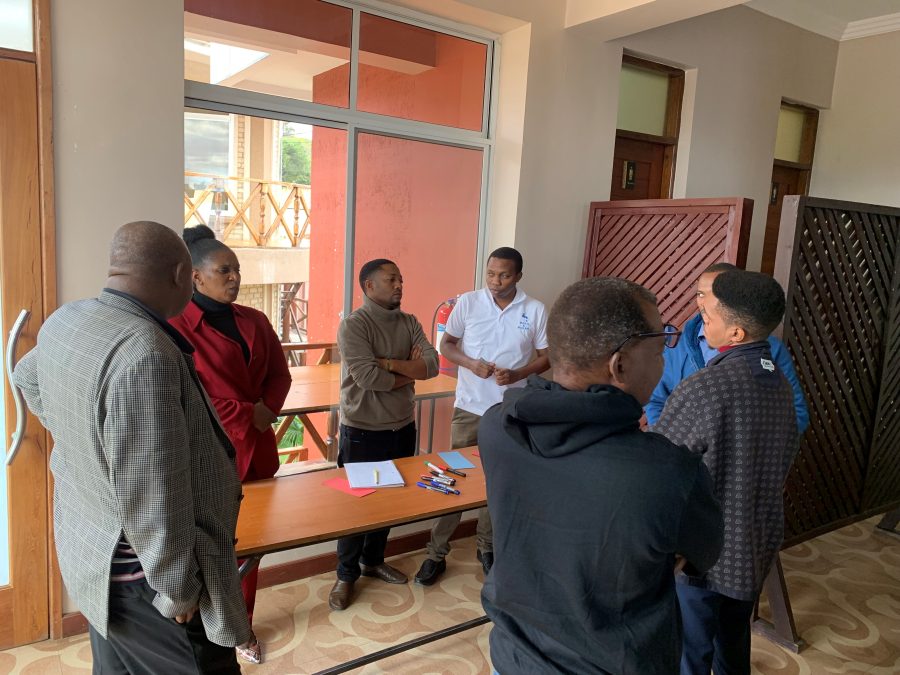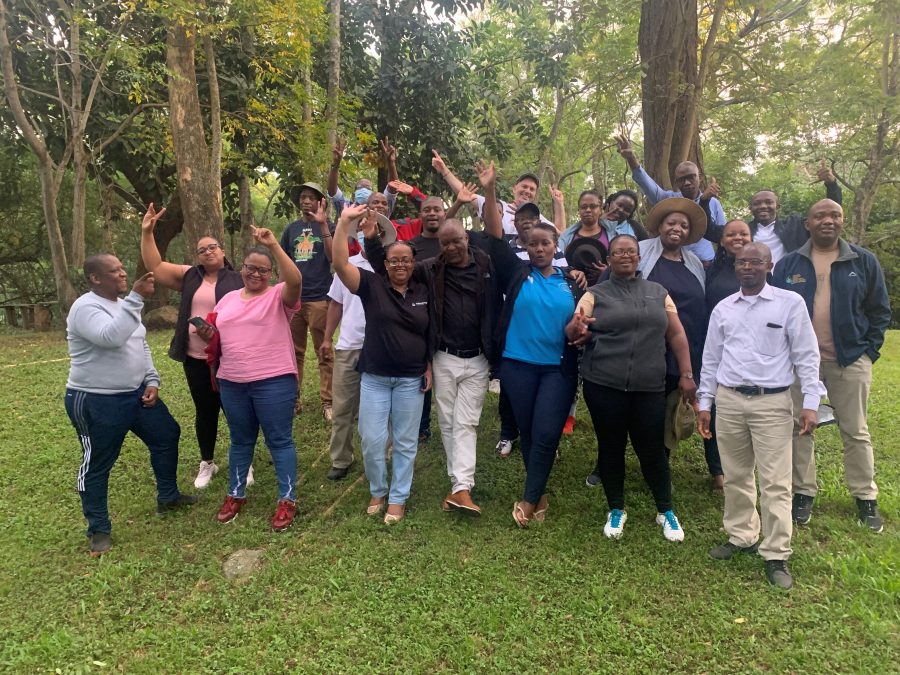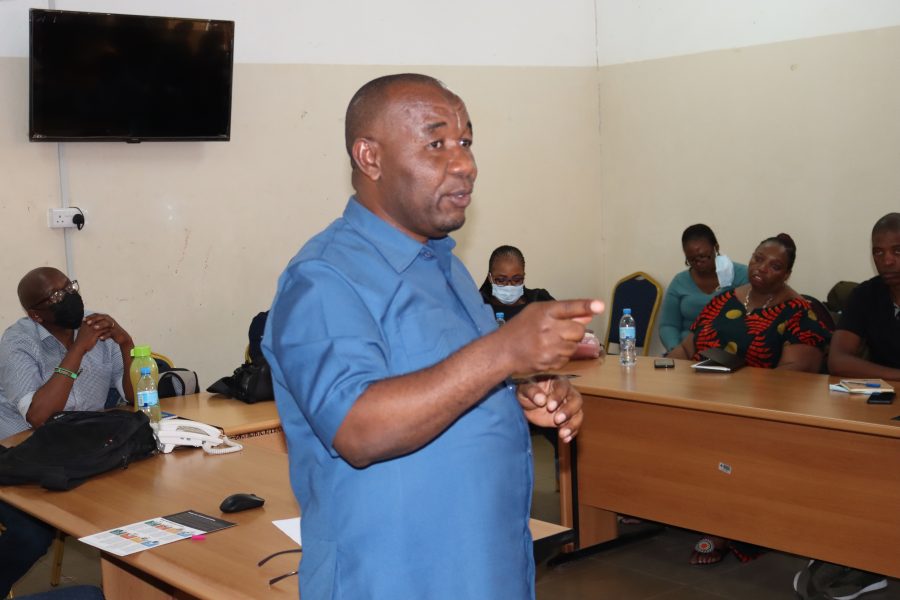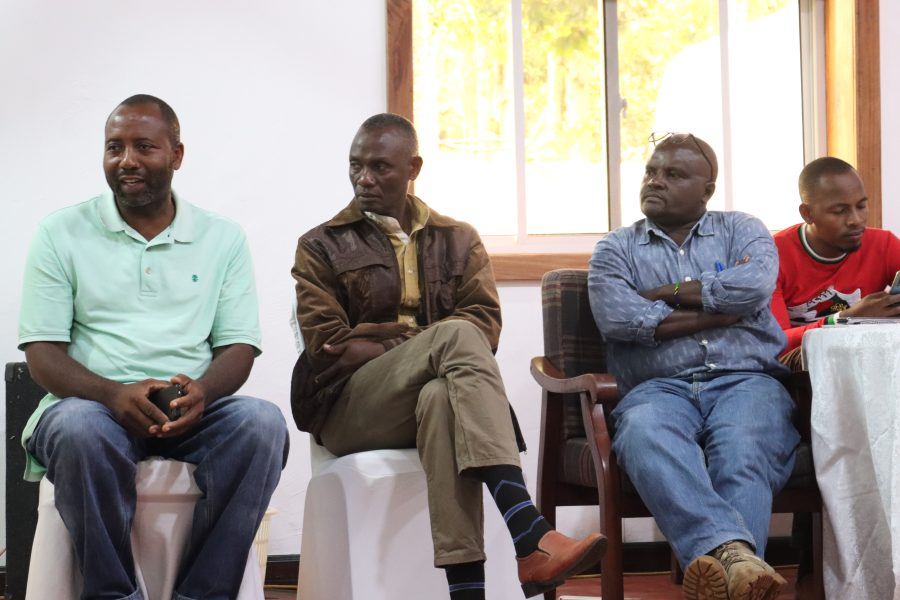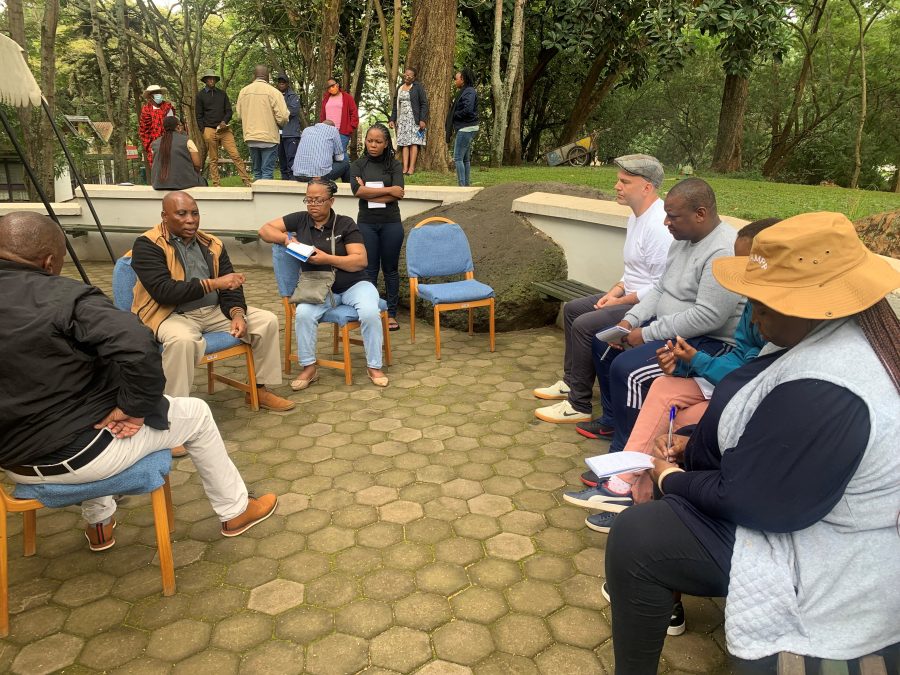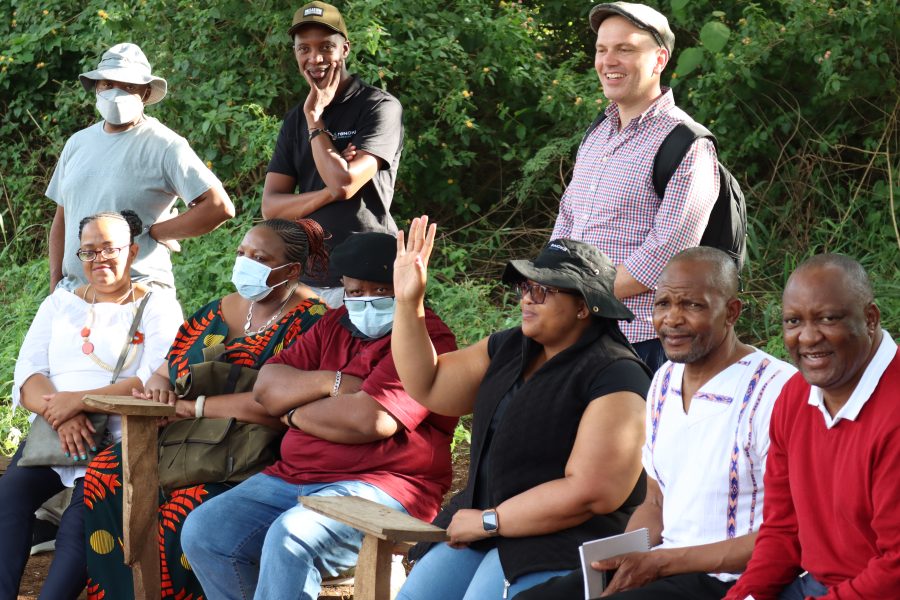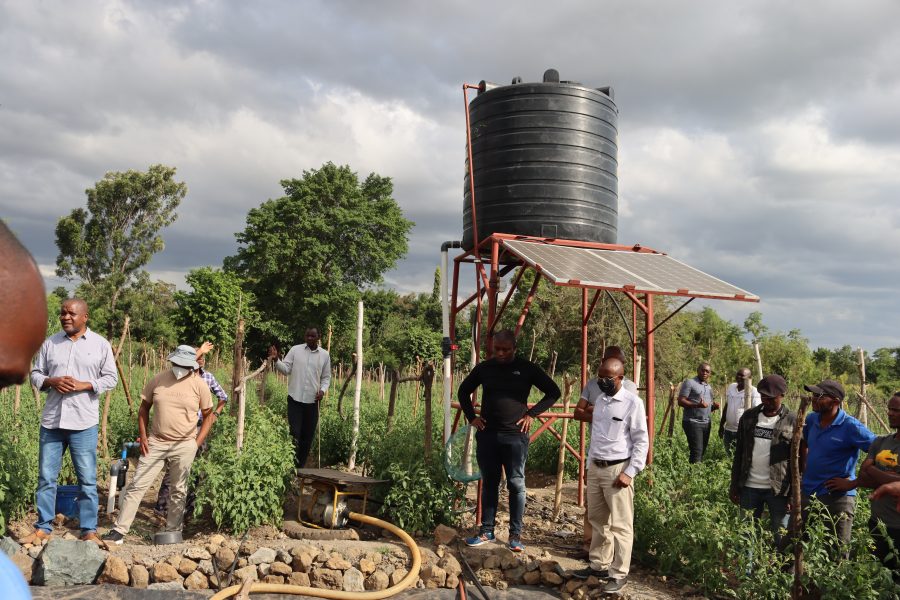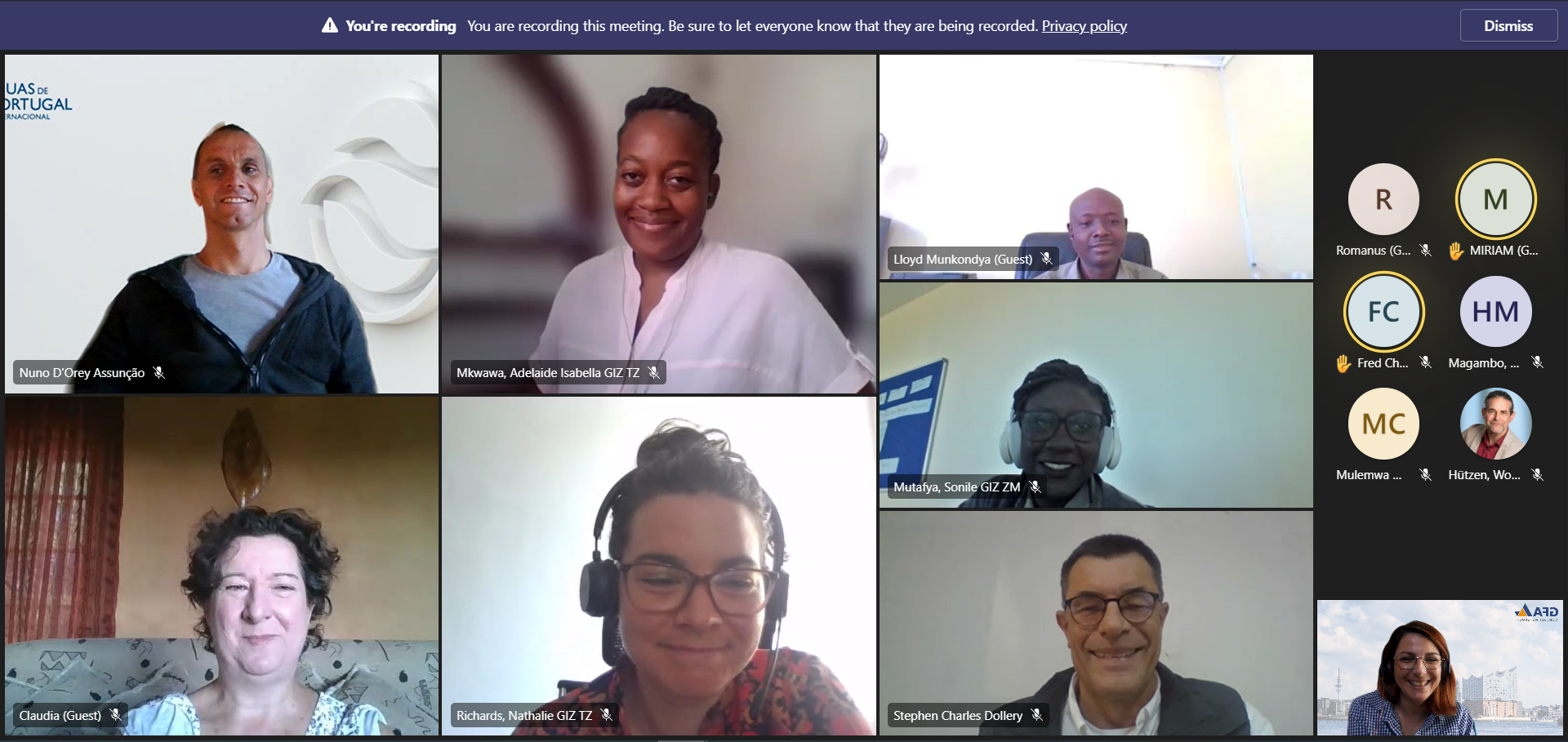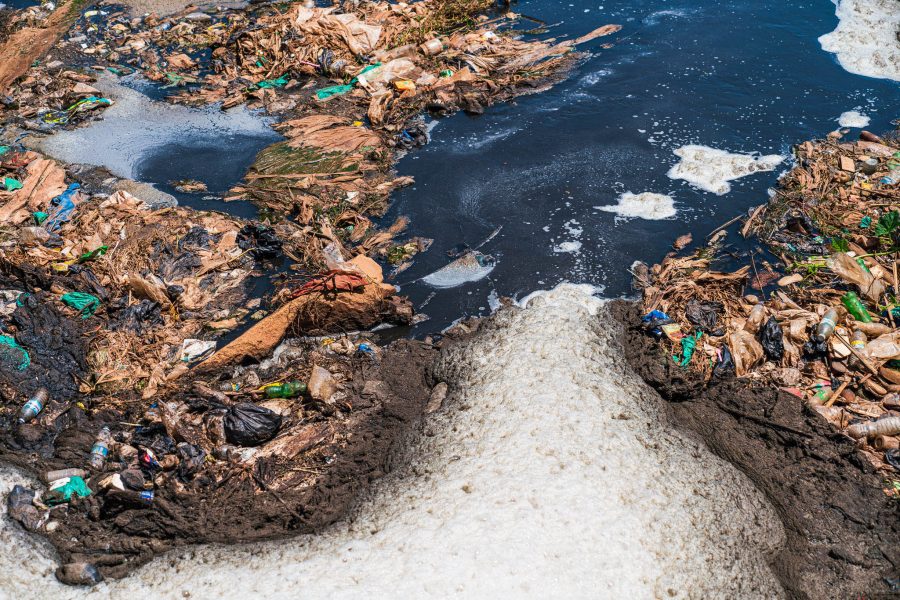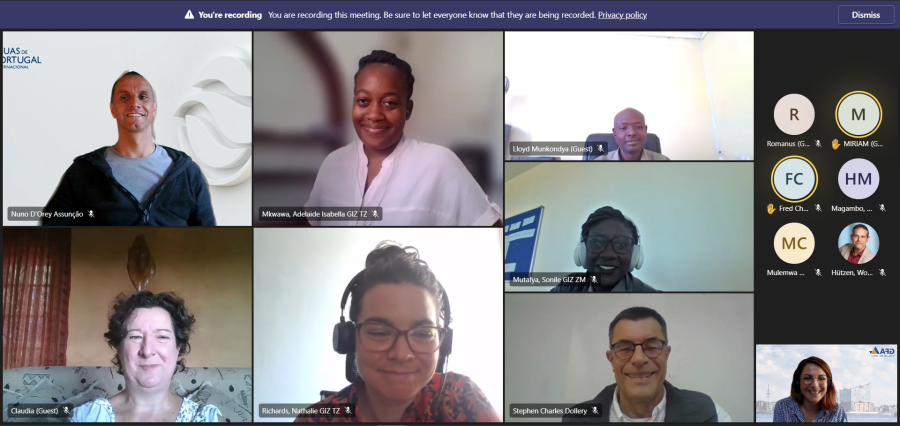Inclusively and sustainably managing natural resources: Experiences from cross-sectoral stewardship partnerships in Tanzania
Collaborative approaches to natural resources governance enable accountability and equitable allocation of resources between competing demands, as can be the case between upstream and downstream water use needs. GIZ’s Natural Resources Stewardship (NatuReS) programme provides facilitation and strategy in setting up cross-sectoral stewardship partnerships for Tanzanian stakeholders to jointly analyze and address natural resources risks, aiming at generating social, environmental and economic benefits.
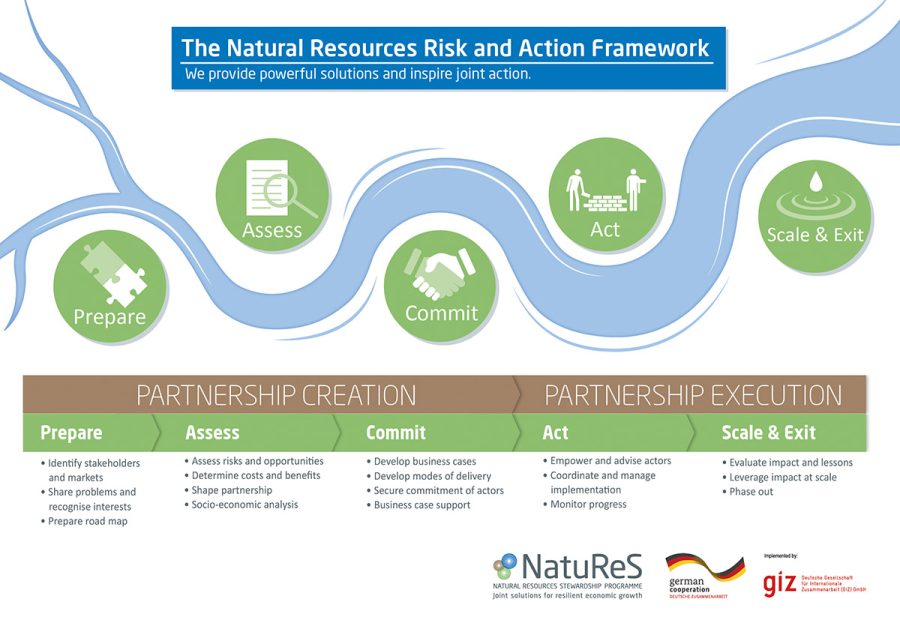
Setting up Stewardship Partnerships in Tanzanian River Catchments
Stewardship partnerships supported by GIZ-NatuReS are built on the understanding that natural resources are better managed through cross-sectoral collaboration. Leveraging the resources and capacities of every sector, the availability and integrity of these resources can be ensured in the long term. Partnerships are established through a step-by-step inclusive process, guiding partners in tackling shared environmental risks in a participatory manner. The aim is to reduce classical silo working systems by accompanying public, private, and civil society sector in identifying joint risks and supporting them in developing joint solutions to reduce these risks. Under this framework, NatuReS Tanzania acts as a neutral broker – supporting partners in working together to find mutually beneficial solutions for sustainable economic growth and the continued use of precious natural resources (Richards et. al, 2022).
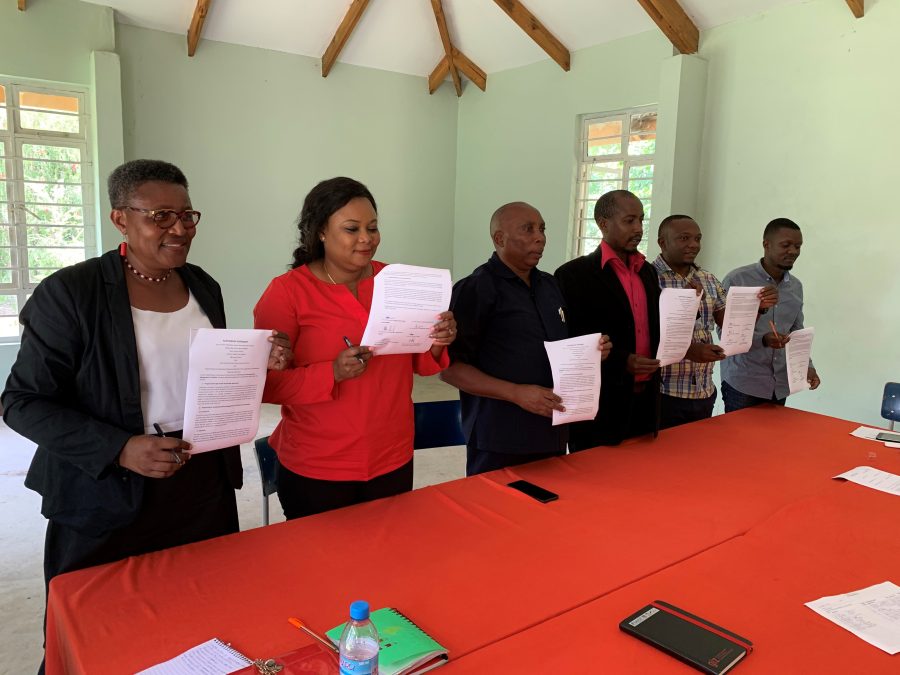
Enhancing Inclusive Participation in Water Resources Governance
NatuReS in Tanzania has enhanced inclusive participation within the supported partnerships by ensuring the equal involvement and representation of all stakeholders in the discussion, planning and decision-making processes in natural resources management. To enable cross-sectoral collaboration, good leadership and coordination mechanisms are of paramount importance. Therefore, the key added value the partnership approach brings to natural resources management is improving the communication and coordination between various users, who are otherwise often not communicating or even hostile towards each other. The regular good governance meetings that partners under the Sustainable Water Management Partnership (SUWAMA) held prior to the Covid-19 pandemic and steering committee meetings that continue to date are examples of these joint fora. In these meetings, participants exchange about how regulators’ roles and responsibilities can be harmonized to increase results-based decision-making, collaboration between sectors can be enhanced, and compliance to environmental regulations be better enforced.
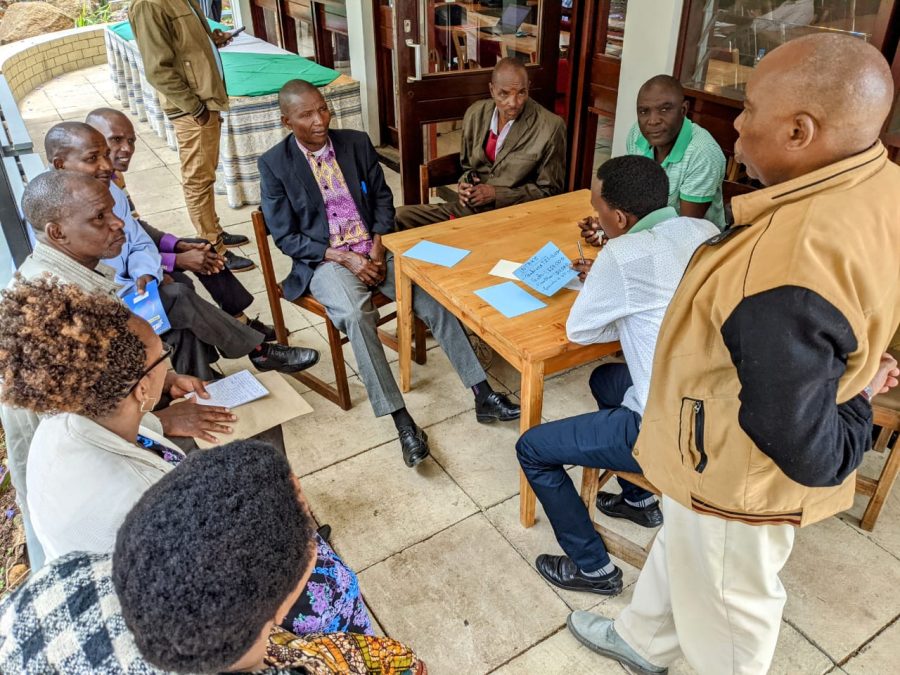
Strengthening Civil Society Organizations
To improve communities and civil society participation, NatuReS has continuously supported the capacitation of Water Users Associations (WUAs), who were previously inactive. WUAs are legal entities stemming from the Water Resources Management Act of 2009. They act as “small water boards” at the community level and are designed as the lowest participative organizations for water resources management within defined basins. Covering segments of watersheds, they are broadly responsible for water conservation activities, conflict management over water issues, and water allocation to irrigators through a permitting system. They are mandated by the Water Act and respective basin boards to bring up the issues of water users at the basin level. As “the eyes and ears” on the ground for the basin offices, they are particularly insightful in managing conflicts over water allocation and know the livelihood activities of local communities.
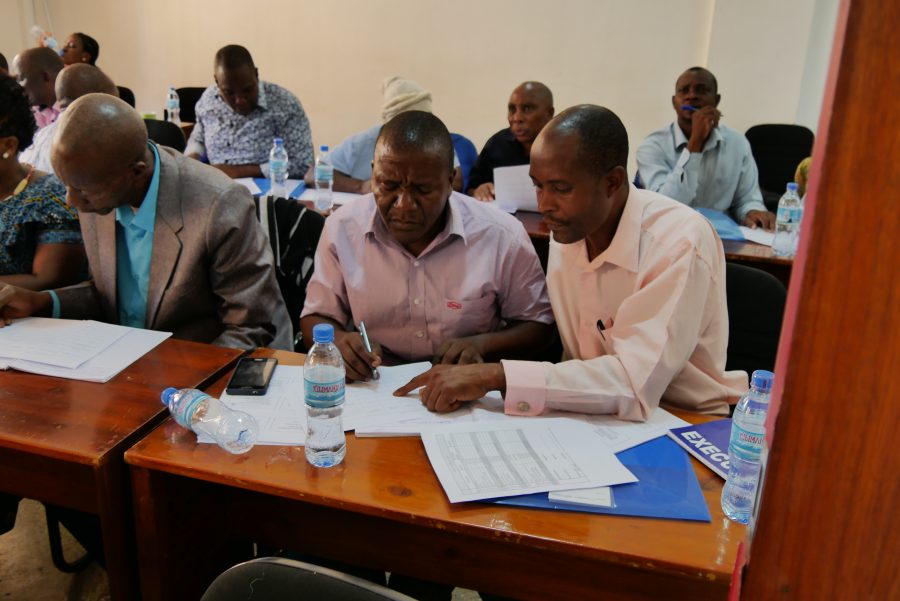
As a WUA leader, I was inspired to join the partnership after seeing the challenges of working with a large group of water users. The partnership has worked by bringing together investors, water users and other diverse stakeholders. We know what everyone is doing, where water is being abstracted from and for what purpose. Furthermore, water users are now conversant with the various governance structures responsible in taking care and overseeing the available water sources. Prior to joining the partnership, Water Users Associations and the Pangani Basin Water Office would constantly be accused of not equitably distributing water among beneficiaries. Through improved coordination, stakeholders now understand their roles and responsibilities in taking care of this precious natural resource.
– Tito Kitomari, Upper Kikuletwa WUA Leader
NatuReS undertook a capacity assessment of the WUAs, identified areas for enhancing their capacity, and provided trainings within the areas of Catchment Conservation – enabling them to play a greater role in sustainable catchment conservation and management; Financial Management – supporting them in managing the finances of their institutions; as well as Leadership and Governance – to build their capacity on strategic leadership, focusing on governance and community leadership roles.
Water resources issues concern everyone in the community, therefore involvement [participation] is crucial. Partnerships provide a platform where stakeholders discuss these issues and help us to come up with more powerful solutions.
– Karim Kimaro, Weruweru WUA Secretary
Steering Private Sector Funds towards Water Resources Management
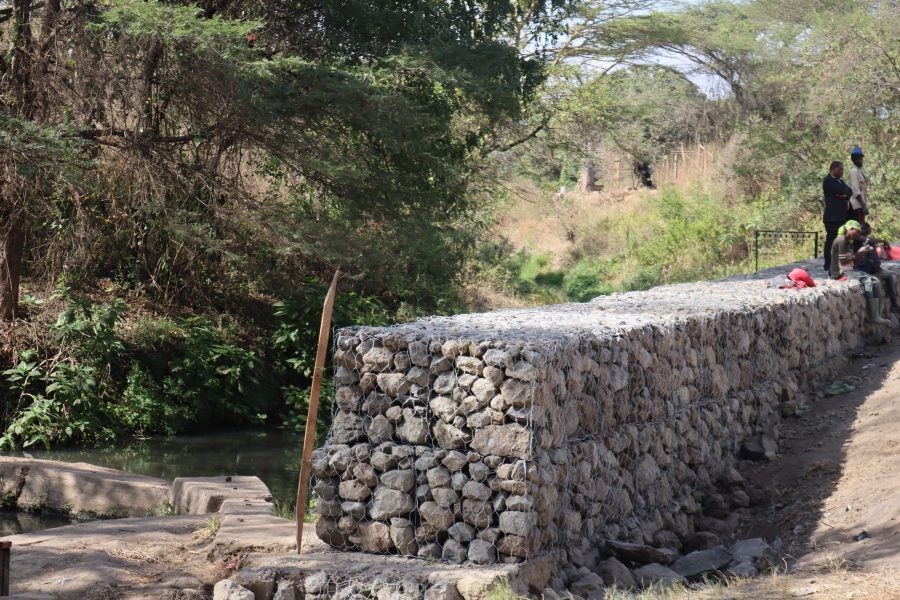
Under partnerships following a stewardship approach, businesses go beyond their corporate social responsibility by making in-cash and in-kind contributions to partnership activities, leveraging funds for public sector to adequately manage natural resources. A good example is the DOMIKWA irrigation furrow structural rehabilitation in the Usa River sub-catchment. The furrow, located along the Usa River, is one of the main furrows supplying water in the area. Partners joined forces to rehabilitate it after its structure had severely deteriorated over time. In-cash and in-kind contributions of 38.5M and 10M Tanzanian shillings were pledged by private sector and furrow members, respectively. The private sector procured most of the construction materials and covered all the labor costs.
Without effective collaboration between government agencies, businesses and communities, it is impossible to make these activities [water resources management] sustainable.
– Abraham Yessaya, Community Development Officer, PBWB
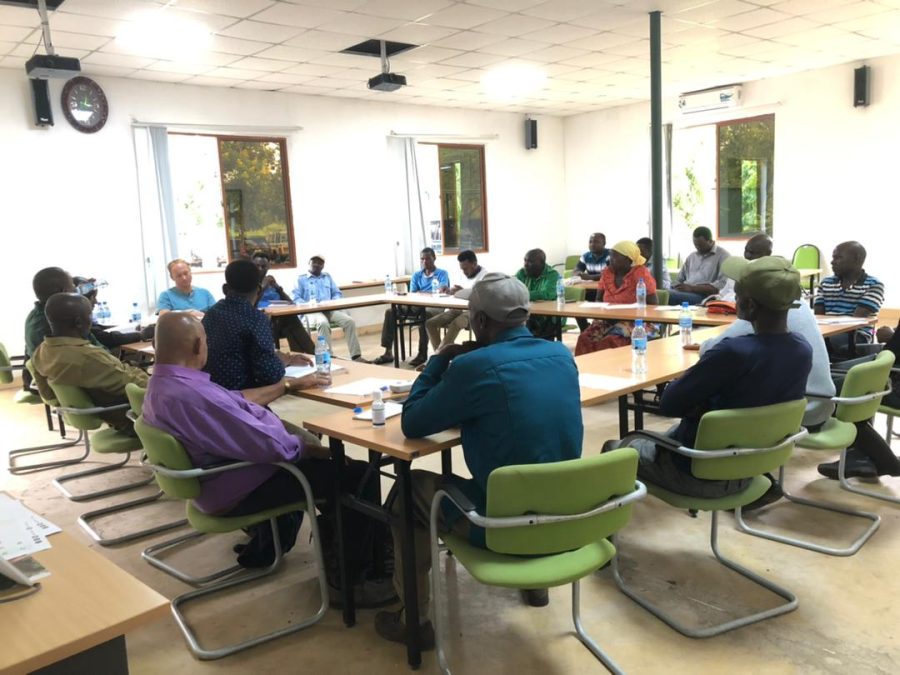
Availability and good quality of natural resources like water, soil or air are key to livelihoods and economies. Their scarcity, endangerment or mismanagement can provoke conflicts. Innovative approaches like natural resources stewardship offer an opportunity to address shared risks and develop joint, inclusive and long-lasting solutions for water-stressed catchments such as the Pangani Basin in Tanzania.
Maintaining a 7-kilometer-long river stream is too much to handle for one company alone. It is difficult to monitor issues such as water theft, structural issues and vandalism at the furrows and water source. As a beneficiary, Dekker Chrysanten believes that collective action is necessary to resolve water challenges. Addressing water risks becomes easier as the responsibility to maintain the river stream is equitably shared amongst stakeholders.
– Gabriel Steven, Flower Transporter and Breeding officer, Dekker Chrysanten
